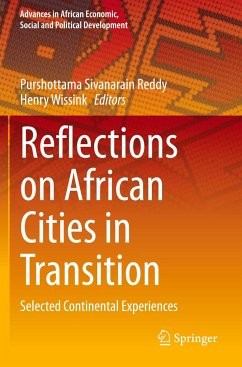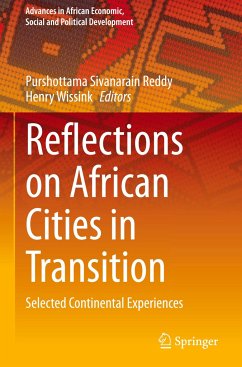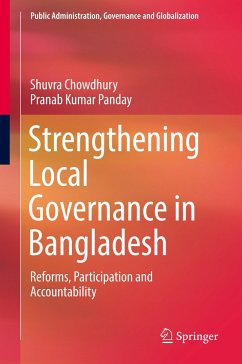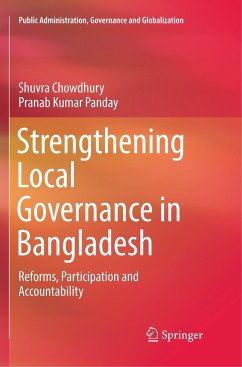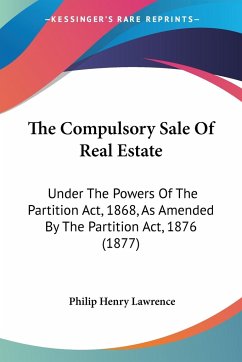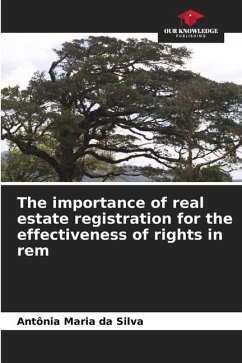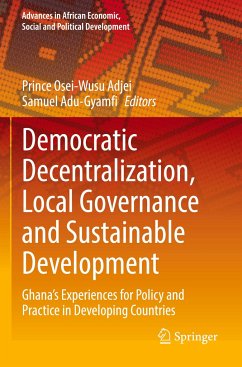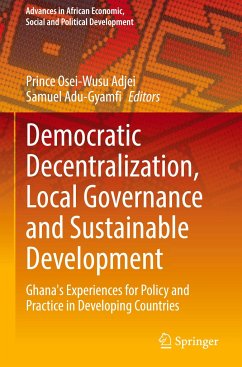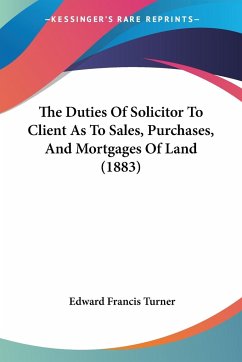
Measuring the Effectiveness of Real Estate Regulation
Interdisciplinary Perspectives
Herausgegeben: Levine-Schnur, Ronit
Versandkostenfrei!
Versandfertig in 6-10 Tagen
91,99 €
inkl. MwSt.

PAYBACK Punkte
46 °P sammeln!
This book discusses the fundamental issues regarding the effect of real estate regulation on housing, urban development, and considerations of justice and efficiency. Bringing together the contributions of prominent scholars representing diverse methodologies and academic disciplines, this book offers new perspectives on core topics such as the effectiveness of land use regulation in terms of housing availability, enhanced equality, and sustainable development; and different modes of regulation and their mutual influences. The book's eleven chapters are divided into five parts which address di...
This book discusses the fundamental issues regarding the effect of real estate regulation on housing, urban development, and considerations of justice and efficiency. Bringing together the contributions of prominent scholars representing diverse methodologies and academic disciplines, this book offers new perspectives on core topics such as the effectiveness of land use regulation in terms of housing availability, enhanced equality, and sustainable development; and different modes of regulation and their mutual influences.
The book's eleven chapters are divided into five parts which address different aspects of real estate regulation, combining theoretical analysis with a close observation of diverse case studies, from North America and Europe to China, the Middle East, and developing economies. Part I offers cutting-edge analysis on how to measure, model, and understand the impact of zoning and other modes of real estate regulation, from economic and normativetheoretical viewpoints. Part II complements Part I by providing historical observations and empirical knowledge on the actual contribution of zoning and historical conservation regulation to cities' shape. Part III considers the outcomes of business and industrial land development policies. Part IV studies urban land development regulation and allows to compare between two relevant case studies-one from Germany, and the other from Poland. Finally, Part V concerns standardization in the real estate market by analyzing the justification and outcomes of such attempts, particularly in the mortgages market.
Providing an interface between theory and practice, the book will appeal to a broad audience, consisting of scholars, policy-makers, practitioners, and students, interested in an interdisciplinary overlook on real estate regulation.
The book's eleven chapters are divided into five parts which address different aspects of real estate regulation, combining theoretical analysis with a close observation of diverse case studies, from North America and Europe to China, the Middle East, and developing economies. Part I offers cutting-edge analysis on how to measure, model, and understand the impact of zoning and other modes of real estate regulation, from economic and normativetheoretical viewpoints. Part II complements Part I by providing historical observations and empirical knowledge on the actual contribution of zoning and historical conservation regulation to cities' shape. Part III considers the outcomes of business and industrial land development policies. Part IV studies urban land development regulation and allows to compare between two relevant case studies-one from Germany, and the other from Poland. Finally, Part V concerns standardization in the real estate market by analyzing the justification and outcomes of such attempts, particularly in the mortgages market.
Providing an interface between theory and practice, the book will appeal to a broad audience, consisting of scholars, policy-makers, practitioners, and students, interested in an interdisciplinary overlook on real estate regulation.



